November 18, 2025 8 Comments
The weather warnings trickled in throughout the week.
As the weekend approached, the possibility edged toward near certainty.
By Friday, May 16, Chantz McPeek and the rest of the Laurel County Fire Department were doing what firefighters do: preparing for the worst. As a volunteer department, firefighters staged at their stations, checked equipment, and ensured personnel stood ready to respond at a moment's notice.
But "volunteer" in Laurel County doesn't mean "inexperienced." Many, including McPeek — a state fire training coordinator — work as career firefighters or state-level instructors by day, bringing a deep well of professionalism to their community.
"We'd been hearing that the potential for it to be extremely dangerous was very high," recalls McPeek, the department's Chairman of the Board.
He and others with families made their own preparations at home, hoping for the best, fearing the worst.
Within hours, nothing in this rural region of south-central Kentucky would be the same. A violent EF4 tornado would bring everything crashing down, ultimately bringing Fire Department Coffee and our Rescue-1 relief truck to their doorstep.
We built the truck for this — supporting communities and first responders during disaster response. Six months ago, we were there. As it so often happens, we saw the best of the fire service and the best of humanity.
Even during the darkest times. Even after losing one of their own.

The Storm
Hours after nightfall on that Friday evening, the dizzying cyclone began tearing through the counties to the west of London, Kentucky, where McPeek huddled with his family.
"About 11 o'clock, we were hearing that things were headed toward Russell County, Pulaski County,” he said. “Everything really started to get hairy about quarter after 11."
McPeek made the quick decision to move his wife and kids down the road to his father-in-law’s home and his sturdy, sheltered basement. From there, McPeek monitored the radio, waiting for the crackle that broke the silence. Hanging on every word.
"We were hoping and praying it was going to let up before it got there," he said. "Unfortunately, that didn't happen."
Instead, the tornado gained momentum. As it bore down on London, the first dispatch came in: a fire alarm. McPeek keyed his radio, trying to warn the crew to seek shelter, not to roll out. The tornado spun right on top of them.

Before they could even process the warning, a different voice cut through the static. It belonged to one of their own, a firefighter who lived in the Sunshine Hill subdivision.
"He yelled that the tornado had hit. Things were really bad, and the roof was off of his house,” McPeek said. “He told the 911 center to do an all-call. It was that bad."
McPeek kissed his family goodbye. He wouldn't see them again until daylight.
‘Oh, No, This is Real, Real Bad’
The next 60 minutes passed in what felt like a few fuzzy seconds. A blur.
An estimated 150 responders from across the region made their way toward the call, deploying in darkness into the devastation. Yet even with more manpower, resources were stretched impossibly thin.
"Radio traffic was just an absolute nightmare," McPeek said. "Everywhere we went, just walking down the road, we found people trapped and stuck and needing help."
They did the only thing they could — they pushed forward, pulling and praying, and doing everything possible to assist.
In the chaos, the department couldn't reach one of its own: Major Les Leatherman. His home was near that first fire alarm call. They assumed he got busy, that his radio had been lost. They kept working.
"As time went on, I began to yell on the radio to check on Les," McPeek says. "When we did make it to Les's home, his home wasn't there. Les didn't make it."
In all, the tornado had claimed 20 lives. The first responders didn’t miss anyone. Those trapped, those injured, those whose lives were lost — the crews found and accounted for all of them.
In that moment of clarity, McPeek and his team held onto one small, profound mercy.
"The one thing that really stood out was that there were no kids or infants that were killed, or even injured,” he said. “And I'm thankful for that."

‘I Need You to Come Now’
The Laurel County Fire Department now grieved an on-duty death while simultaneously managing a catastrophic disaster response.
Still, firefighters do what firefighters do. They helped anyone and everyone.
In the days that followed, the fire station became a "beacon of hope," a distribution center for the community.
But McPeek felt a heavy burden to do more.
He remembered seeing the Fire Department Coffee Rescue-1 truck at a firefighting conference. On Sunday evening, he made a call.
They left a short, direct voicemail.
"Our city's been hit with an EF4 tornado. I need you to come to Laurel County, and I need you to come now, if you can. Please give me a call.'"
Early the next morning, his phone rang. It was Randy James from Fire Department Coffee.
As McPeek recalls, the answer was simple: "Hey, this is Randy from Fire Department Coffee. Got your message. Don't really have any questions. You were very clear in what you needed, where you needed it, and when you needed it. The guys will be getting on the road in about six hours."
Rescue-1 rolled into Laurel County on Monday evening. The crew immediately set up, first at the fire station and then in the heart of the devastation in Sunshine Hill.
They served coffee, but they delivered much more.
"People were coming in flocks," McPeek said.
The FDC team handed out gloves, hats, and T-shirts — small comforts that made a big impact.
The FDC crew didn't just stay for a day or two. They stayed for over a week. They stood side-by-side with the Laurel County firefighters, attended Major Leatherman's funeral, and served coffee at the dinner afterward.
"I can't even begin to tell you how much we appreciated them," McPeek said. "I mean, it was incredible."

Six Months Later: The Resilient Spirit
Today, six months later, Laurel County is rebuilding.
"Homes are being rebuilt,” McPeek said. “People are moving back into their homes.”
As the holidays approach, they are collecting Christmas trees and ornaments for families who lost everything. It’s another reminder of how neighbors have come together to help their own.
Reflecting on the night of the storm, McPeek is clear about what his department stands for.
"You never really know how you’ll react until you get punched in the mouth,” he said. “When that happens, you've got two options: You can lie down and take it, or you can get up, push through, and do what you're trained to do. And that's exactly what the Laurel County Fire Department did. They stood up, and they pushed forward, and they never looked back. And I'm very proud to be a part of it."

8 Responses
Charlie Chalk
November 24, 2025
As a retired FD Deputy Chief and fellow Kentuckian, thank you all for help in this incident. It was privilege to visit your Rockford facility and see first hand the tremendous vehicle you have built and know that it’s not just the truck, but the people and the heart you have for those in need. Keep up the good work and… the great coffee.
———
Fire Department Coffee replied:
Thank you so much for the kind words and for your service as a Deputy Chief! We really appreciate your stopping by our Rockford storefront, and we’re glad you got to see the truck. Your support truly means a lot, and we’ll definitely keep the coffee flowing! ☕️
Karen Ibach
November 19, 2025
Such a sad story, glad that you guys went down to help these folks in a time of need. Keep up the amazing work your doing! Proud of y’all.
———
Fire Department Coffee replied:
Thank you so much for your kind words. We’re grateful we could support Laurel County during such a hard time.
George Mead
November 20, 2025
Thank you.
We have friends and family in that area and it was devastating for many.
God Bless you all!
Keep up the good work and fight!
That’s why I get my coffee from you. And you represent us as a country of American heroes!
———
Fire Department Coffee replied:
Thank you so much, George. We truly appreciate your kindness. It means the world to our team to hear that our efforts resonate with customers like you, and we are grateful for your support!
Joanie Mills
November 20, 2025
I am the mother of one of those “volunteer” first responders who did not see her son for a couple of days! FDC made an impact and moved on our community! They made an impact on me! So much so, We drove to Rockford IL. This company is amazing! Talk about support! They are absolutely amazing. The ministry they perform is above and beyond!
———
Fire Department Coffee replied:
Thank you so much for sharing with us — we are so grateful for your son’s service. We’re truly glad to hear that our efforts have made a positive impact on both your community and you personally. Thank you for taking the time to visit our storefront in Rockford; we sincerely appreciate your support!
Lillian Palmer
November 20, 2025
Thanks for all you do. This was devastating 😢 💔 One of alot of reasons I support you ❤️
———
Fire Department Coffee replied:
Thank you for your comment! We were grateful for the opportunity to support the Laurel County community during that difficult time.
Lawrence Hennigan
November 20, 2025
I love Fire Department Coffee, it warms my heart when I hear about them coming to the aid of folks. This story is even more heart-warming since it took place in my state.
———
Fire Department Coffee replied:
Thank you for supporting Fire Department Coffee. We’re proud to be able to help communities when it matters most!
Roger Wilson
November 19, 2025
Thank you guys for your response and help.I’m sure the people of Laurel County appreciated you very much. I live in neighboring Whitley County and am a member of the Whitley County Cattlemen Association. We set up and grilled burgers and provided meals for the people in Laurel County. I wish I’d known you guys were there. I would have enjoyed meeting you all and thanking you in person. Again thank you for all your help. Coming together to help people is what it’s all about.
———
Fire Department Coffee replied:
Thank you so much! We appreciate everything the Whitley County Cattlemen Association did for Laurel County. It would’ve been great to meet you—your support truly means a lot!
Leave a comment
Comments will be approved before showing up.
Also in Fire Department Coffee News
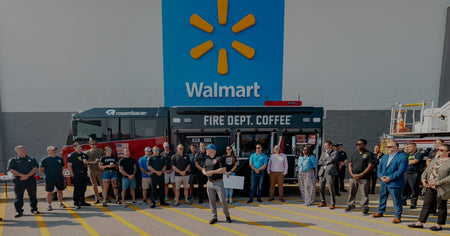
FDC Featured In Nationwide Walmart Commercial and Celebrates Community Roots in Rockford
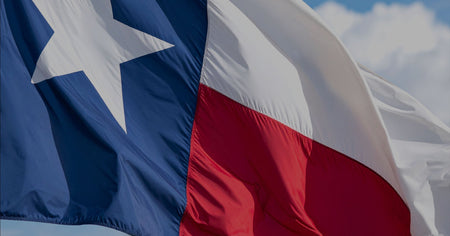
Rescue-1 Deploys to Texas: Fire Department Coffee Supports Communities After Catastrophic Flooding
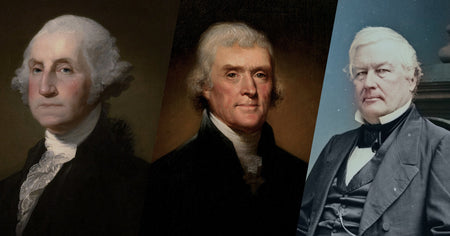
Celebrating America’s Firefighting Presidents

Fire Department Coffee and Kidde Working Together to Promote Fire Safety
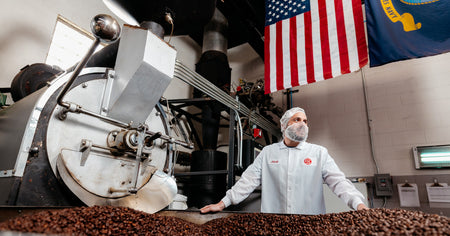
From Barista to Coffee Expert: Fire Dept. Coffee's Jacob Ball Brews Success
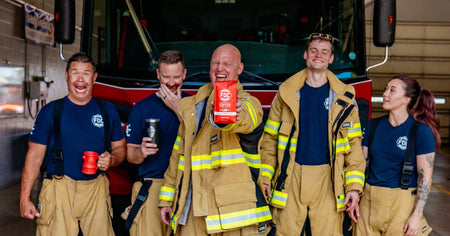
Get to Know the Hilarious, Hardworking Team Behind FDC Videos
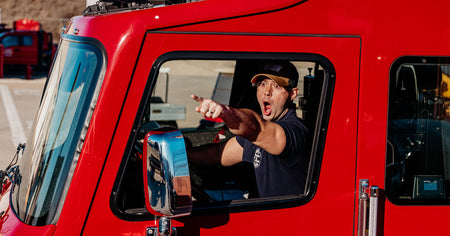
From Fan to Family: How Lance Woodruff Became an FDC Star
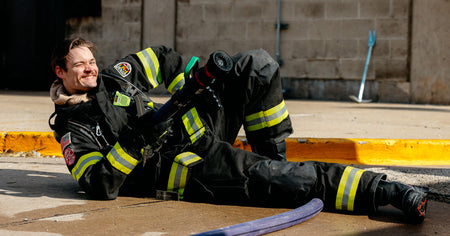
Marine, Musician, Firefighter: Josh Kennedy is Doing It All
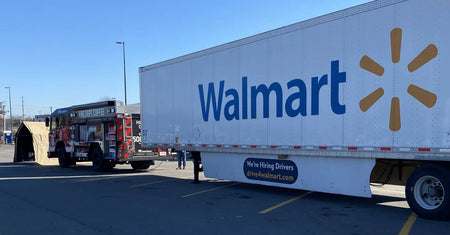
FDC Mobilizes Rosenbauer Fire Truck for Tennessee Tornado Relief
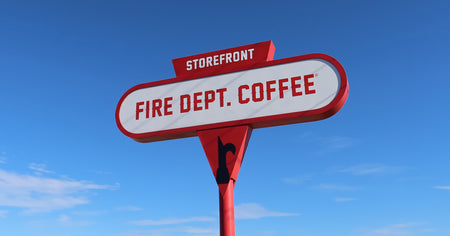
Fire Dept. Coffee's First Retail Shop Opens in Rockford, IL

Sugar Cookie Rum Infused Coffee - Spirit Infused Coffee Club
FOLLOW OUR JOURNEY, GET SPECIAL OFFERS AND PROMOTIONS
- SPIRIT INFUSED COFFEE
- Bourbon Infused Coffee
- Whiskey Infused Coffee
- Rum Infused Coffee
- Spirit Infused Coffee Club
- Spirit Infusion Process
GEAR
© 2025 Fire Department Coffee, Inc.












David Lacy
November 24, 2025
Great job guys, but then having been a small part of the Los Angeles County Fire Department for a while, I am not surprised. Seems to me that anyone with experience in any kind of first responder job or served in the military or had some kind of job that required helping people or doing what had to be done in stressful times is someone that does a good job when needed. GREAT JOB!!
———
Fire Department Coffee replied:
Thank you so much for your thoughtful comment. We really appreciate your support and service! We’re grateful we had the opportunity to help!